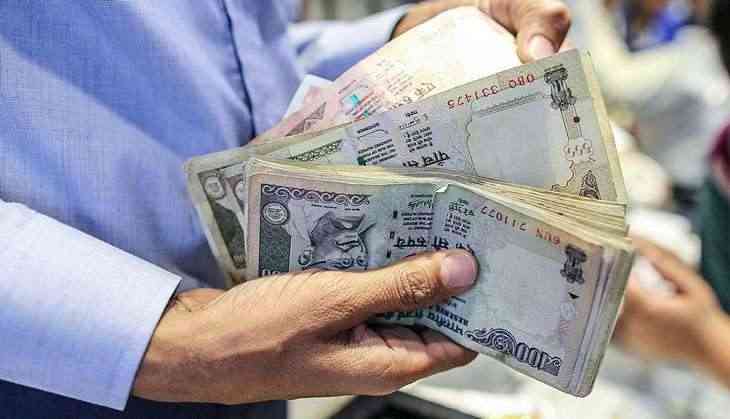An unequal world is a threat to all: How good businesses can fight inequality

Sponsored Article
Inequality has many shades in the world, but income inequality being the most prominent nowadays. Just eight men own the same amount of wealth as the 3.6 billion people who make up the poorest half of the world, says a new Oxfam report.
Oxfam's recent report An economy for the 99 percent highlights how the gap between the rich and poor is widening at a dangerous pace. Over the next 20 years, 500 people will pass over $2.1 trillion of wealth to their heirs, which is a sum larger than the GDP of India.
Even former American president Barack Obama addressed the issue of income inequality last year at the UN General Assembly. He said, "A world where 1% of humanity controls as much wealth as the bottom 99% will never be stable."
India is one of the most of unequal countries
New research reveals how skewed the global distribution of wealth is, especially in India. India happens to be one of the most unequal countries in the world with a very high and sharply rising concentration of income and wealth. In this country, the richest 1 per cent of population owns 58 % of its total wealth. If that's not shocking enough, here's more: 57 billionaires have the same amount of wealth as the bottom 70% of India.
We need to create a more human economy in India. The Indian government or the civil society cannot be expected to fight inequality alone. The role of the private sector becomes questionable in the context of rising inequality.
After all, companies do not exist in isolation. They are also a part of a bigger ecosystem and play a key role in perpetuating inequality. Take for example, the CEO of India's top information firm, who earns 416 times the salary of a typical employee in his company.
How the private sector can fight inequality
The private sector has an equally important role in promoting responsible business and creating equal opportunities for all. Here are 4 ways how good businesses can fight inequality:
1. Pay fair taxes
In India, it is no secret that companies evade taxes in various ways, especially by using tax havens. Tax evasion is not only a crime, but it essentially robs the poorest people from the public services they need the most.
Big companies receive many tax incentives in India. India has lost an alarming amount of over Rs 620 billion in tax incentives to corporates. On top of that, there are over 50,000 profitable Indian companies, which do not pay any tax. Although the Indian tax structure looks reasonably progressive on paper, these figures show that in practice much of the tax is neither paid, nor collected.
It is well known now that Indian companies have used tax havens abroad in small countries like Mauritius and Cyprus. The Panama Papers have proved that some Indian nationals and companies have been dodging taxes for years.
Big businesses and the super rich have to stop committing tax frauds because the ultimate suffering is borne by the most poor and vulnerable people, whose struggle for basic survival is never-ending.
A good business acts a legitimate corporate citizen and ensures that it pays all its taxes on time, in a fair manner.
2. Follow responsible business frameworks
India has created business responsibility frameworks for its private sector, in the form of National Voluntary Guidelines (NVGs). The Ministry of Corporate Affairs set up these guidelines in 2011. Soon after, SEBI mandated the top 100 listed companies to report on NVGs annually.
Each of the top 100 companies was asked to submit a Business Responsibility Report (BRR) annually, which shows whether it is following responsible practices or not. Yet, many companies look at this as another obligation and don't take it seriously.
The analysis done by IRBF for the India Responsible Business Index (IRBI) IN 2016 revealed that several companies have made incomplete disclosures about their CSR policies and expenditure.
A good business adopts the NVGs in true spirit and discloses its CSR practices in an open way.
3. Clean up the supply chain
Lack of clarity in a company's supply chain puts it at a huge risk, apart from adversely affecting the economy and society. Non-transparent supply chains violate human rights in the form of low wages, poor working conditions, gender and caste-based discrimination, child labour, etc.
In India, more than 90% of the people are employed in the informal sector. Despite being undervalued and largely unrecognised, the informal sector continues to support large companies. An analysis of the CSR policies of the top 100 companies in India showed that the policies they have in place for their supply chain are insufficient and not up to the mark.
A good business needs to ensure that its supply chain is safe, humane and free from exploitation.
4. Use CSR to end inequality
In India, it mandatory for companies with a minimum turnover and profits to spend 2% of their average profit for the last 3 years on Corporate Social Responsibility (CSR). Although spending just 2% on CSR activities is just a small step, the private sector can fully utilise this law as a chance to fight inequality. To make this happen, a good business needs clear and focused CSR policies.
Companies need to do CSR interventions for extremely vulnerable and marginalised communities in India. They need to also focus their CSR projects in economically backward regions of India, which are home to such communities.
The private sector, government and civil society need to come together and make a collaborative effort to fight inequality. Companies need to create and test new business models with the help of NGOs. The government can play its part by creating a strong regulatory system.
A good business works not just for its own profit, but also for everyone's benefit. It empowers those who help create it - labour, consumers, suppliers and local communities.
Is your company ready to do good business?
First published: 11 February 2017, 18:24 IST





![BJP's Kapil Mishra recreates Shankar Mahadevan’s ‘Breathless’ song to highlight Delhi pollution [WATCH] BJP's Kapil Mishra recreates Shankar Mahadevan’s ‘Breathless’ song to highlight Delhi pollution [WATCH]](http://images.catchnews.com/upload/2022/11/03/kapil-mishra_240884_300x172.png)

![Anupam Kher shares pictures of his toned body on 67th birthday [MUST SEE] Anupam Kher shares pictures of his toned body on 67th birthday [MUST SEE]](http://images.catchnews.com/upload/2022/03/07/Anupam_kher_231145_300x172.jpg)






